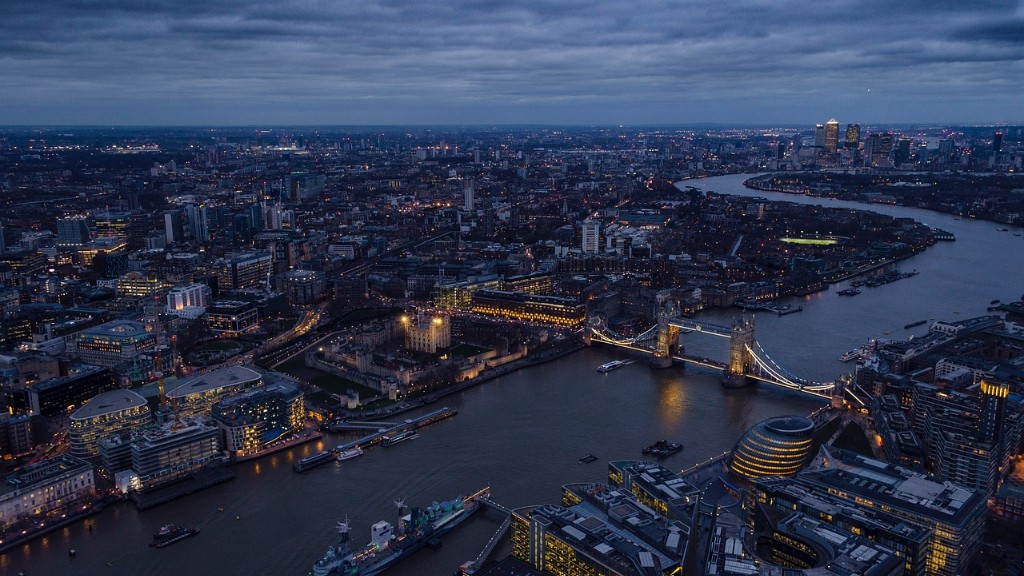What Happened in the German Blockade of Great Britain
From 1939 to 1941, the German Third Reich enforced a blockade of Great Britain as part of their World War II strategy. Fearing the potential of a British invasion by sea, the Germans put in place a series of measures to disrupt supply routes and military transport between the United Kingdom and other more distant parts of the British Empire. The blockade began in late December of 1939 and caused significant hardship throughout the wartime period.
The German strategy was to prevent or disrupt shipping traffic to and from the U.K. by capturing or sinking merchant ships in the waters around Britain. This would create an effective barrier to supplies and military reinforcements from arriving in Great Britain. To achieve this, the Germans employed both surface vessels such as battleships and U-boats, as well as aircraft such as Messerschmitt Bf 109s and Junkers Ju 88s. The blockade was made more effective by the long range of these aircraft, which enabled them to detect and destroy targets over the vast areas of the North Sea and Atlantic Ocean.
The Germans also enforced a system of quotas to limit the amount of supplies that could be shipped in. This caused serious shortages in areas such as food and fuel. The result was a period of scarcity in Britain, with people suffering from rationing, shortages, and the disruption of vital services. In addition, some of the supplies that were able to get through were of low quality or decayed. This led to further hardships for the population.
The German blockade was one of the major reasons for Britain’s eventual victory in the war. Despite the shortages and hardships, the blockade caused Britain to become more resilient and determined. This gave the citizens of Britain an increased sense of national unity and the drive to maintain the war effort for the foreseeable future.
In the early part of 1941, the effects of the blockade began to be felt in Great Britain. Not only did people suffer from the immediate shortages, but the disruption of trade caused huge economic hardship. The inability to import goods caused a huge decrease in production, resulting in a severe decline in the country’s GDP. The disruption also caused a massive drop in exports, as the country had to focus on producing for its own needs.
The effects of the German blockade of Great Britain were far-reaching. Even after the war, a number of industries felt the lingering effects of the blockade. For example, the fishing industry in Scotland was almost completely wiped out by the disruption caused by the war, and it was not until the late 1950s that it began to recover to pre-war levels. The British merchant navy, which was heavily damaged by German attacks, also took a long time to recover.
The German blockade of Great Britain is an important part of the country’s history, and it continues to be studied today. By understanding the events that occurred and their long-term effects, historians can gain a better understanding of the way war can affect a country, and the impact it can have on its people.
Maritime Strategies Used
The German Blockade of Great Britain began with an attempt to block supply routes to and from the U.K., using a variety of methods. German U-boats aimed at disrupting maritime supply routes between Great Britain and the rest of the British Empire. These submarines operated in the North Sea, the Atlantic Ocean, and other bodies of water around the U.K. Other surface vessels, such as battleships, were also used to harass merchant vessels.
Aircraft were also employed as part of the strategy. Long-range Messerschmitt Bf 109s and Junkers Ju 88s were used to detect and destroy targets in the open sea, disrupting the British merchant fleet and creating a blockade. Furthermore, the German air force employed a tactic of laying minefields in the sea, making it difficult and dangerous for British vessels to navigate, causing an effective blockade.
Aside from these active methods, Germany also imposed a system of quotas to limit the amount of supplies that could be imported from the rest of the British Empire. This system of economic disruption contributed to the overall impact of the blockade.
Throughout the conflict, Great Britain employed a variety of countermeasures to mitigate the effects of the German blockade. These included the establishment of a convoy system in order to protect merchant ships from U-boat attacks, and the deployment of long range aircraft and radar. These strategies were largely successful in allowing some supplies to get through and keeping the Germans from inflicting further damage.
The Impact on the Civilian Population
One of the most devastating impacts of the German blockade of Great Britain was the disruption and shortage of food, fuel, and other essential supplies. As the blockade interrupted trade with the rest of the British Empire, the population had to cope with rationing and limited supplies of food, fuel, and other goods.
This deprivation affected every aspect of civilian life, with shortages of clothing, medicine, and other important items. The shortages were felt most keenly in the cities, where rationing was introduced and people had to go without basic necessities. This caused widespread discontent amongst the civilian population, and at times unrest and even riots occurred due to frustration with the government and the state of the war.
The shortages also resulted in increased prices and black marketeering. People were forced to resort to purchasing goods on the black market, which was often dangerous and expensive. This further exacerbated the effects of the blockade and added to the hardships of the people.
The effects of the blockade were profound, leading to starvation, disease, and a general decline in the overall health of the nation. These effects were further compounded by the air raids that took place during the war, and led to a decline in the quality of life for the civilian population.
Allied Countermeasures
The Allies were determined to counter the German blockade of Great Britain. One of the principle ways in which they did this was by setting up a convoy system, where merchant ships were escorted by warships in order to protect them from U-boat attacks. Through this system a number of supplies were able to make it to the U.K.
The Allies also employed further tactics to counteract the German blockade. Long-range aircraft were used to detect and disable German submarines and surface vessels, while the use of radar allowed Allied ships to detect German craft at distances. While these tactics were not always successful, they did help to mitigate the harmful effects of the blockade.
The Allies also took steps to disrupt the German blockade itself. Through covert operations, they aimed to disrupt German supply routes and disrupt their efforts to lay minefields. By disrupting the German supply chains, they were able to disrupt the overall effectiveness of the German blockade, as supplies had a greater chance of reaching the U.K.
The Allies also took steps to facilitate the transport of goods from the rest of the British Empire to Great Britain. They set up supply convoys to carry needed goods to the island nation. Furthermore, they set up stations along the northern coasts to facilitate the loading and unloading of supplies.
End of the Blockade
The German blockade of Great Britain came to an end after the Battle of the Atlantic in 1941. This marked the decisive victory of the Allied forces, which resulted in the end of the U-boat threat and the return of much needed supplies to Britain. After the battle, life slowly began to return to normal in Britain.
The end of the blockade coincided with Britain’s entry into the Second World War. This gave the Allies the opportunity to begin liberating occupied territories, and eventually culminate in the defeat of Nazi Germany in 1945. The war was won, in part, due to the dedication and resilience of the British people, in spite of the hardships they endured during the German blockade.
The end of the blockade was also important for the British economy. The disruption of trade throughout the wartime period had caused a severe decline in production, and the blockade had exacerbated this. Therefore, the end of the blockade meant that Britain was able to begin trading freely again on the world market, leading to an increase in production and GDP.
The end of the blockade also helped the fishing industry, which had been severely damaged by the conflict. The fishing industry in Scotland was particularly hard hit, and began to recover slowly in the late 1950s. Other maritime industries, such as the merchant navy, also had to be rebuilt from the ground up after the war.
The Legacy of the Blockade
The German blockade of Great Britain had a long-lasting impact on the country. It caused severe disruption to trade and production, and consequently had a major effect on the country’s economy. The shortages and deprivations of the wartime period had a profound effect on the life of the civilian population.
The blockade also led to an increased sense of national unity and determination among the people of Britain. In spite of the hardships they faced, the people of Britain stood strong and persevered against the German aggression, leading ultimately to a successful outcome. This spirit of resilience in the face of adversity is still seen today, and is one of the positive legacies of the German blockade.





